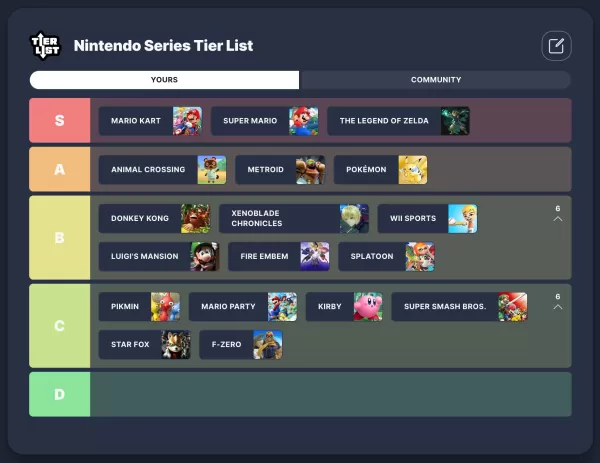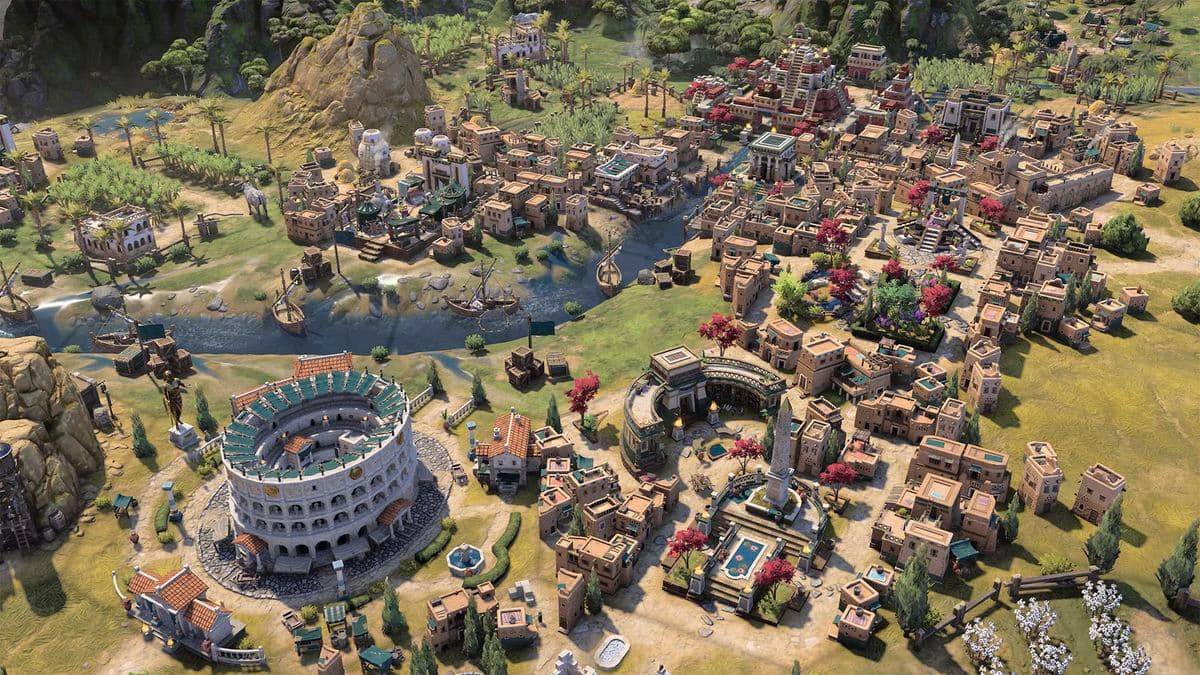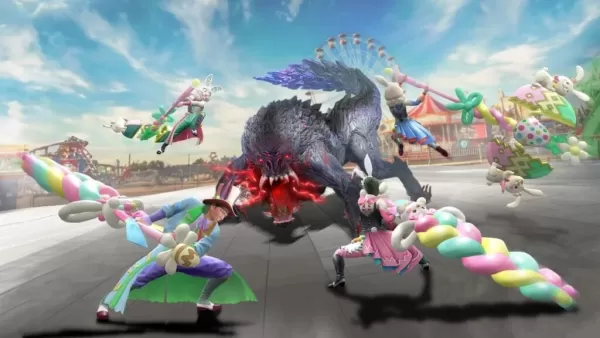"Persona Games and Spin-Offs: Complete Chronological List"
The Persona series, originally a spin-off of Shin Megami Tensei, has evolved into a powerhouse of modern RPGs, captivating fans with its deep narratives, engaging gameplay, and a rich multimedia presence that spans sequels, remakes, anime, and stage plays. The franchise's popularity continues to surge, showing no signs of slowing down.
With the release of Persona 3 Reload for PlayStation 5, Xbox Series X, and PC, newcomers might be wondering where to start their journey into this iconic series. Below, we offer a comprehensive guide to every game and spin-off, suggesting the best entry points for new players, as well as detailing the chronological and release order of the series.
Jump to:
- How to play in order
- How to play by release date
- Upcoming releases
Answer
See Results
How Many Persona Games Are There?
The Persona franchise currently boasts twenty games. This includes several expanded versions of the mainline entries, featuring new story content or remakes. While direct ports and remasters are not included in this count, we will highlight every alternate version of each game in our listings below.
Which Persona Game Should You Play First?
For those new to the series, diving into Persona 3 Reload, Persona 4 Golden, or Persona 5 Royal is a great starting point. These are the latest iterations of the third, fourth, and fifth mainline entries, respectively, and are available on PC and most major consoles, with the exception of Persona 3 Reload on Nintendo Switch.
Concerned about missing out on the overarching narrative? Don't be. Each game in the series features a standalone story with unique characters, making them perfect for newcomers. To help decide which game to start with, consider watching gameplay videos and exploring the social links in each title to see which one resonates with you the most.
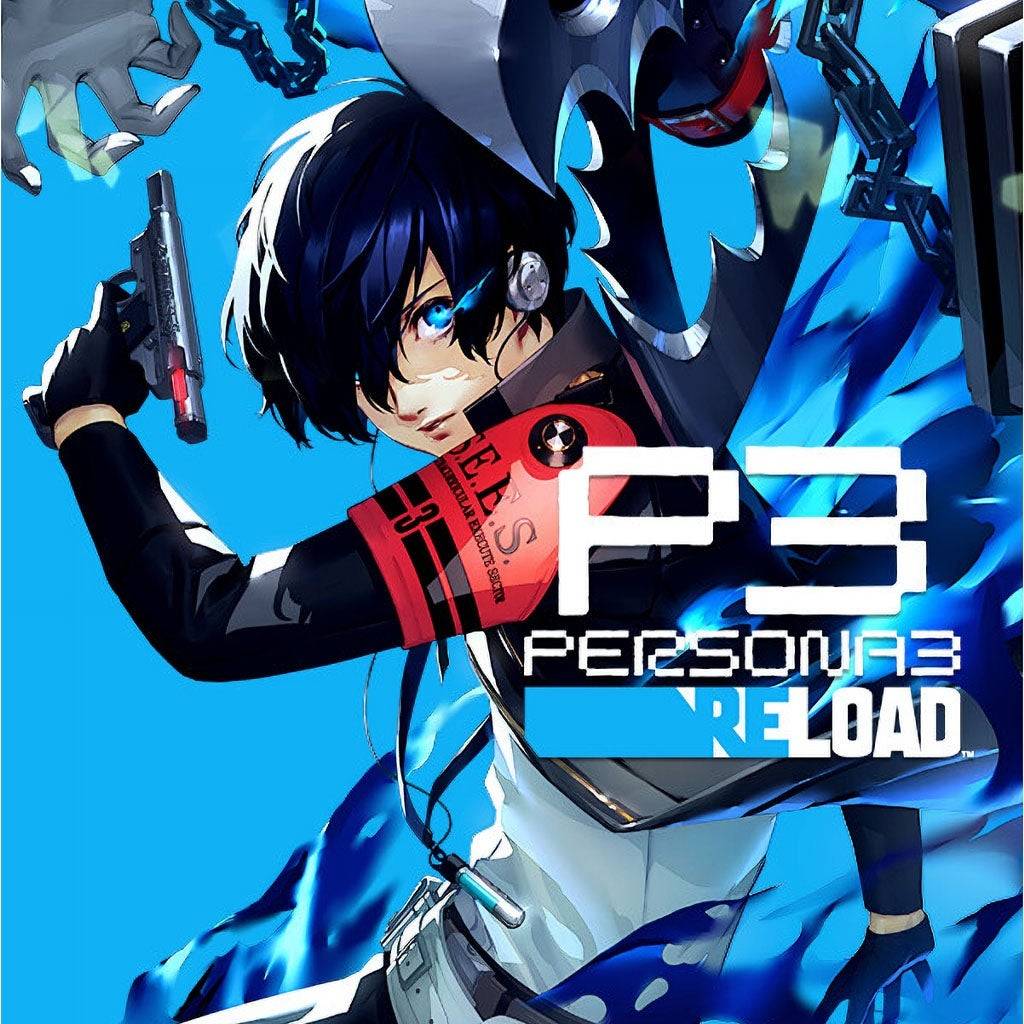
Persona 3 Reload
54
Available on PS5, PS4, and Xbox Series X.
See it at Amazon
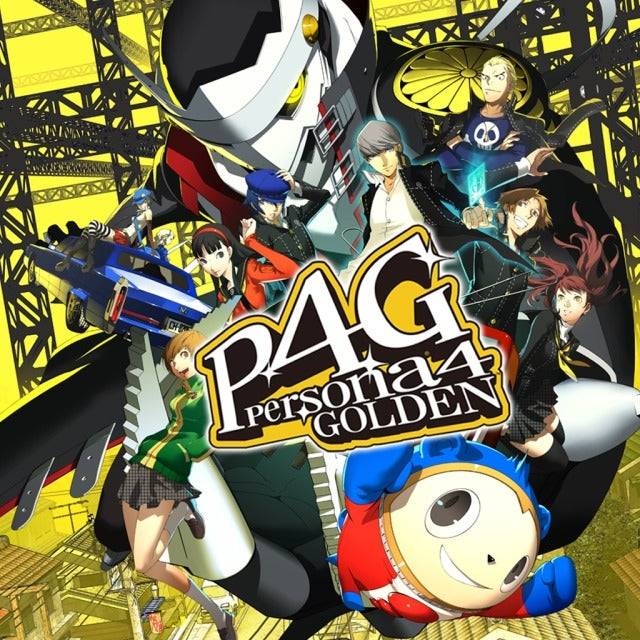
Persona 4 Golden
42
Available on PC, Xbox, PS5, and Nintendo Switch
See it at Nintendo

Persona 5 Royal
103
Available on PC, Xbox, PS5, and Nintendo Switch
See it at Amazon
Every Persona Game and Spin-Off in Chronological Order
These blurbs contain mild spoilers for each game, including characters, settings, and story beats.
1. Revelations: Persona (1996)
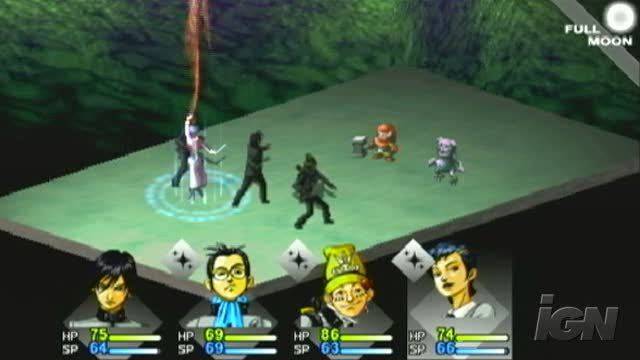
The inaugural title of the series, Revelations: Persona, emerged as Atlus' response to the acclaim of Shin Megami Tensei: If…, another spin-off centered around high-schoolers combating demons. Building on the successful concept, Revelations: Persona introduced a full dungeon-crawling RPG experience, following a group of high school students battling supernatural forces in Mikage-cho. Utilizing their awakened Personas, they tackle shadows and navigate dungeons, setting the foundation for the franchise with elements like combat Personas, the Velvet Room, and a teenage cast.
2. Persona 2: Innocent Sin (1999)
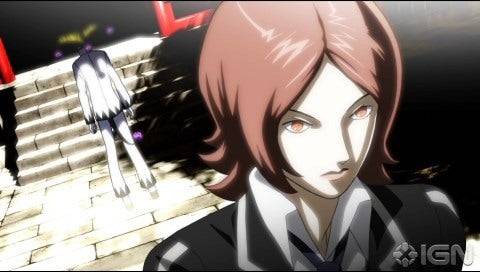
Persona 2: Innocent Sin, the second entry, launched in 1999, following a new group of high-school students led by Tatsuya Suou. Their mission? To thwart the enigmatic villain, Joker, and dismantle the cult of the Masked Circle. The narrative revolves around rumors that come to life, leading to dungeon exploration, shadow battles, and party development. A direct sequel, Persona 2: Eternal Punishment, continued the story just a year later.
Read our review of Persona 2: Innocent Sin.
3. Persona 2: Eternal Punishment (2000)
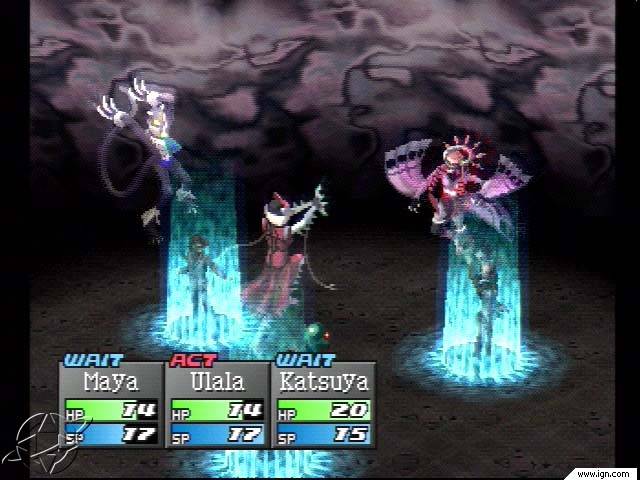
Continuing from Innocent Sin, Eternal Punishment shifts the protagonist role to Maya Amano, who is tasked with investigating the Joker Curse. The game maintains the turn-based, dungeon-crawling gameplay, as Maya and her allies confront a familiar foe in a gripping narrative.
Read our review of Persona 2: Eternal Punishment.
4. Persona 3 (2006) / Persona 3 FES (2007) / Persona 3 Portable (2009) / Persona 3 Reload (2024)
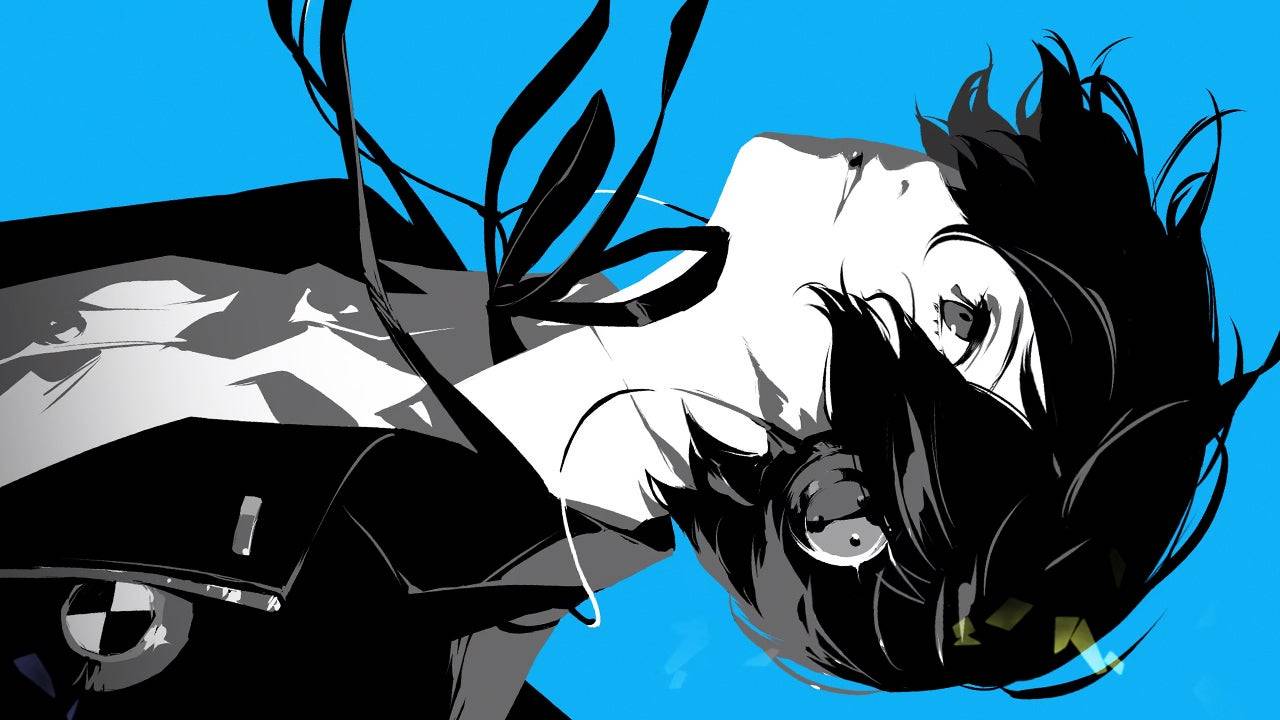
Persona 3 marked a significant evolution, integrating a daily calendar system that balanced school life and social interactions with supernatural battles in Tartarus. The story follows Makoto Yuki, who uncovers the Dark Hour and a demonic tower emerging from his school. As he and his classmates delve deeper, they unravel a global threat. Persona 3 introduced social links and other mechanics that became hallmarks of the series.
Read our review of Persona 3 Reload.
Alternate Versions of Persona 3:
Persona 3 has seen multiple re-releases, each offering different experiences. Persona 3 FES included an additional chapter, The Answer, and a female protagonist route. Persona 3 Portable featured the female protagonist route but omitted The Answer. Persona 3 Reload is a full remake for modern consoles, excluding both The Answer and the female protagonist route.
5. Persona 3: Dancing in Moonlight (2018)
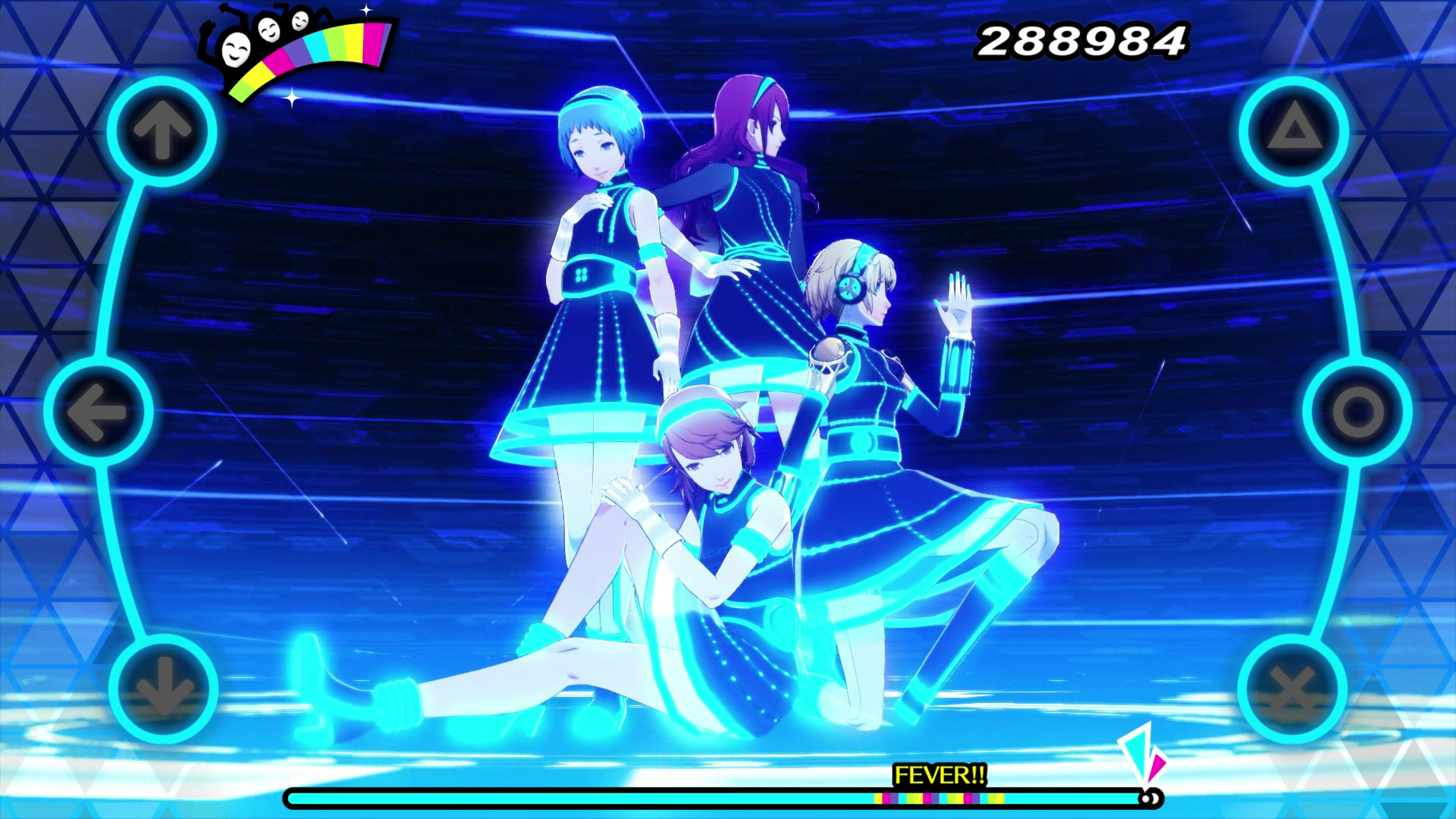
A rhythm-based spin-off, Persona 3: Dancing in Moonlight, challenges the S.E.E.S team to a dance-off in the Velvet Room during a dream sequence. The game is set within the main campaign and is considered canon, featuring dance routines to iconic Persona 3 tracks.
6. Persona 4 (2008) / Persona 4 Golden (2012)
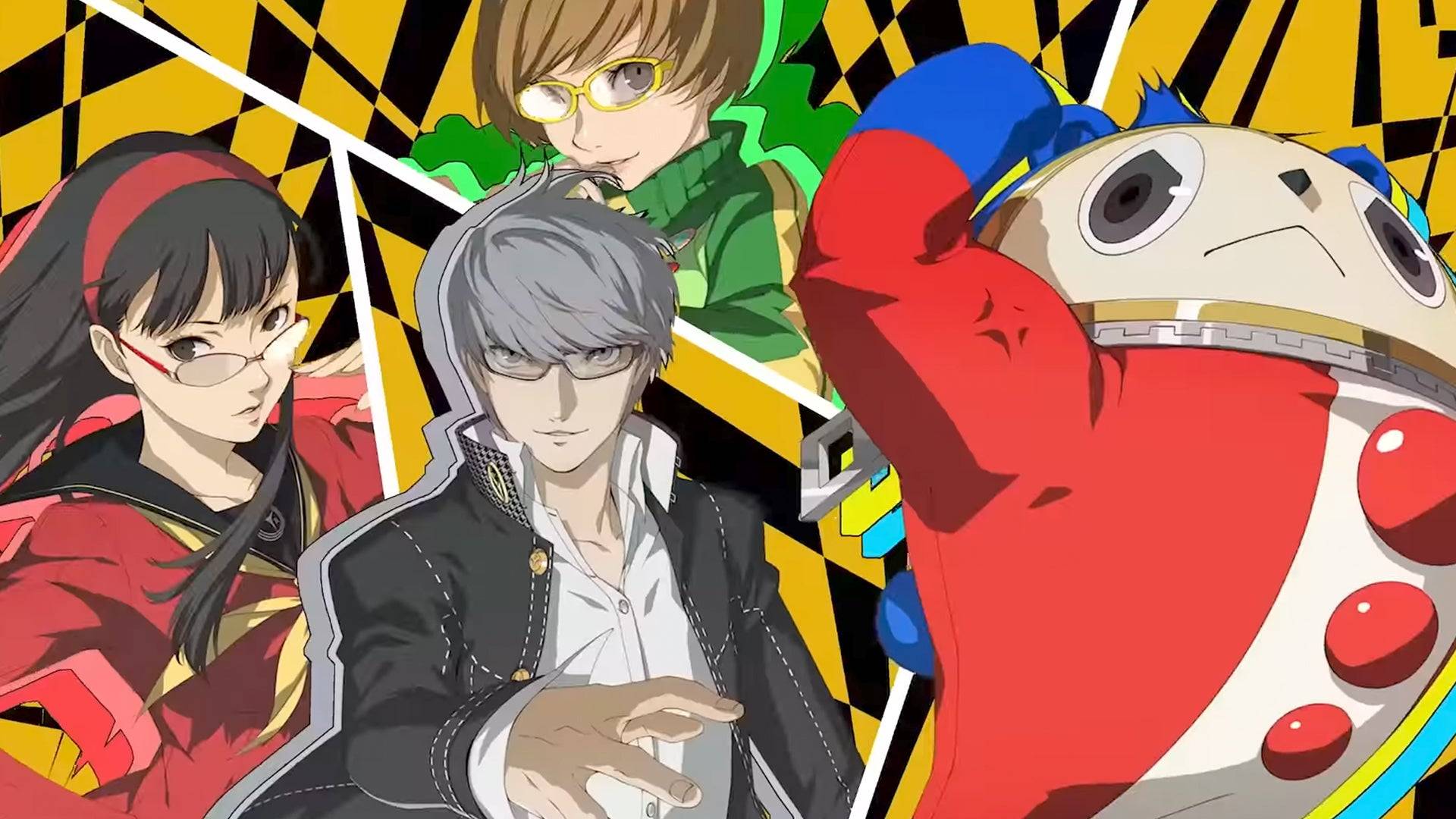
Persona 4 transports players to the rural town of Inaba, where protagonist Yu Narukami moves in with his family and gets entangled in a series of mysterious murders linked to a supernatural realm accessed through TV monitors. The game enhances the mechanics from Persona 3, maintaining the calendar system and introducing new dungeons and story content in its re-release, Persona 4 Golden.
Read our review of Persona 4 Golden.
Alternate Versions of Persona 4:
Persona 4 Golden, released in 2012, expanded on the original with new story elements and an additional dungeon, widely regarded as the definitive version of the game.
7. Persona Q: Shadow of the Labyrinth (2014)

Persona Q: Shadow of the Labyrinth intertwines the stories of Persona 3 and Persona 4, trapping both teams in a distorted version of Yasogami High School during specific segments of their respective narratives. As they collaborate to navigate a labyrinth and unravel a new plot, the game harks back to the series' dungeon-crawler origins.
Read our review of Persona Q: Shadow of the Labyrinth.
8. Persona 4 Arena (2012)
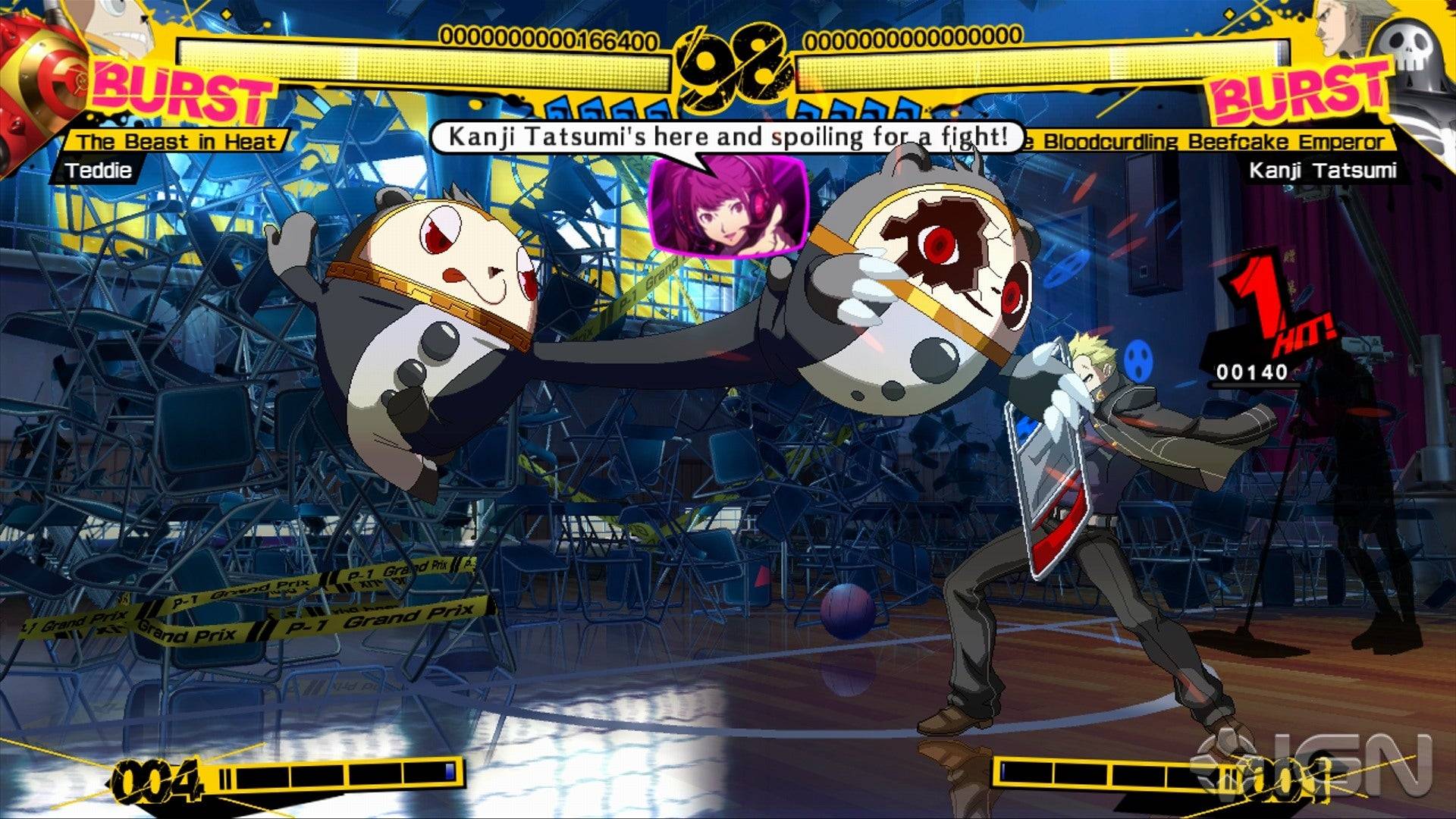
Persona 4 Arena continues the narrative of both Persona 3 and 4, introducing a fighting game where Yu Narukami returns to Inaba and enters a mysterious tournament in the TV world. Featuring a roster of iconic Persona characters, the game blends the stories of both titles.
Read our review of Persona 4 Arena.
9. Persona 4 Arena Ultimax (2013)
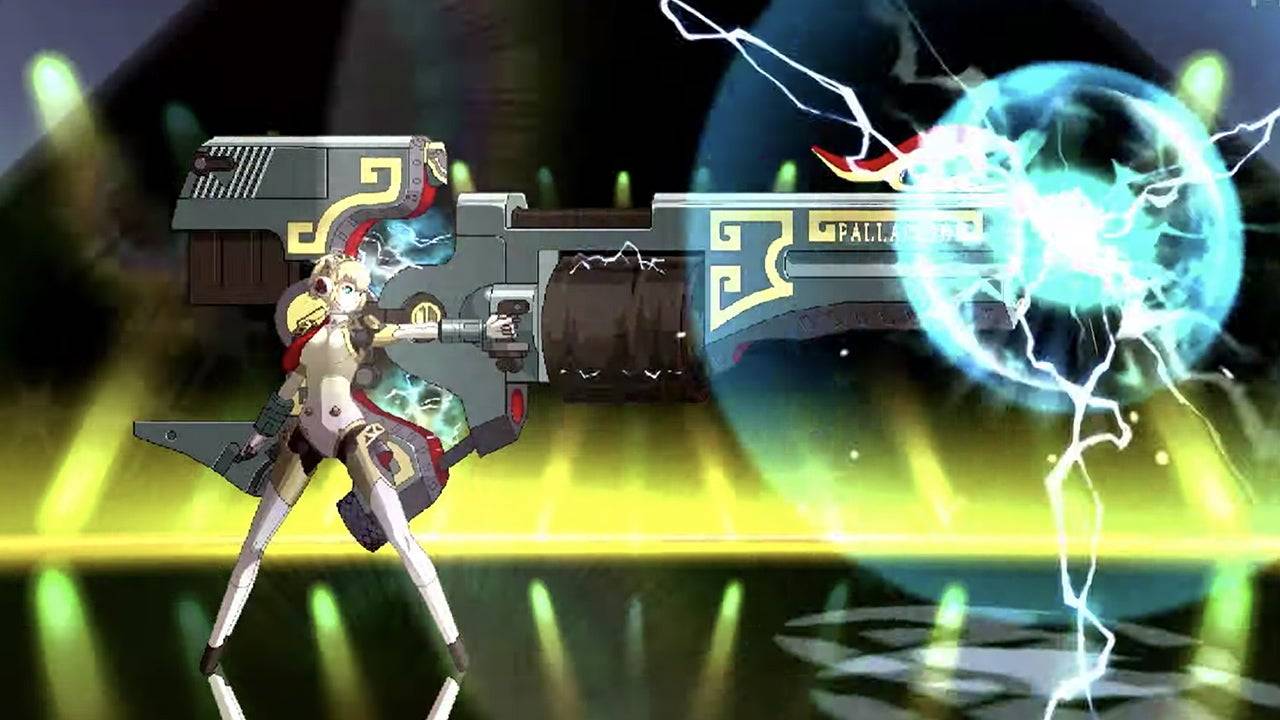
A direct sequel to Persona 4 Arena, Ultimax expands the roster and continues the story, with the Persona 4 squad and the Shadow Operatives from Persona 3 facing new challenges in the TV World.
Read our review of Persona 4 Arena Ultimax.
10. Persona 4: Dancing All Night (2015)
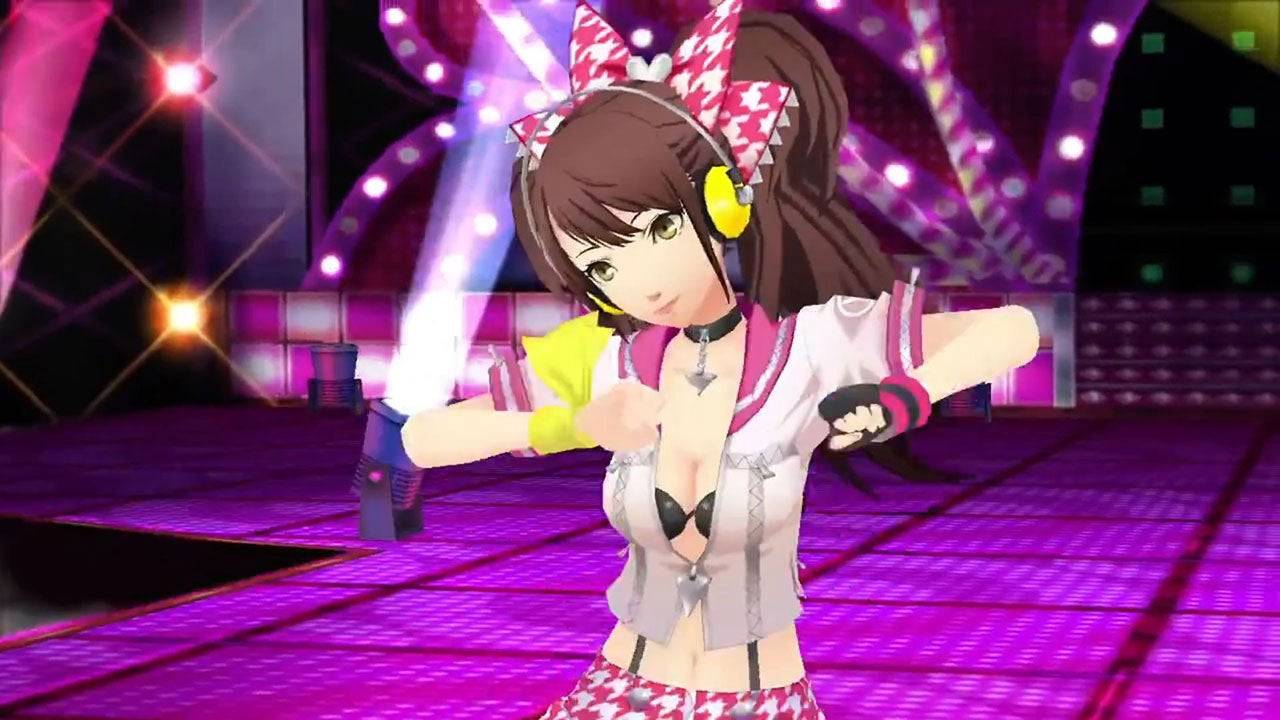
Persona 4: Dancing All Night is a rhythm-based game that continues the storyline in a unique way, as the Investigation Squad is drawn into the Midnight Stage to perform dance routines to Persona tracks.
Read our review of Persona 4: Dancing All Night.
11. Persona 5 (2016) / Persona 5 Royal (2019)

Persona 5, the fifth mainline entry, introduces players to Tokyo and the protagonist, Joker, who is on probation after being falsely accused. Discovering a supernatural realm called palaces, Joker and his friends, known as the Phantom Thieves, aim to change the hearts of corrupt individuals. The game builds on previous mechanics with new features like Mementos and the negotiation system, becoming Atlus' best-selling game and a cultural phenomenon.
Read our review of Persona 5 Royal.
Alternate Versions of Persona 5:
Persona 5 Royal expands on the original with new characters, dungeons, and an additional semester, offering the most comprehensive experience of the game.
12. Persona Q2: New Cinema Labyrinth (2018)
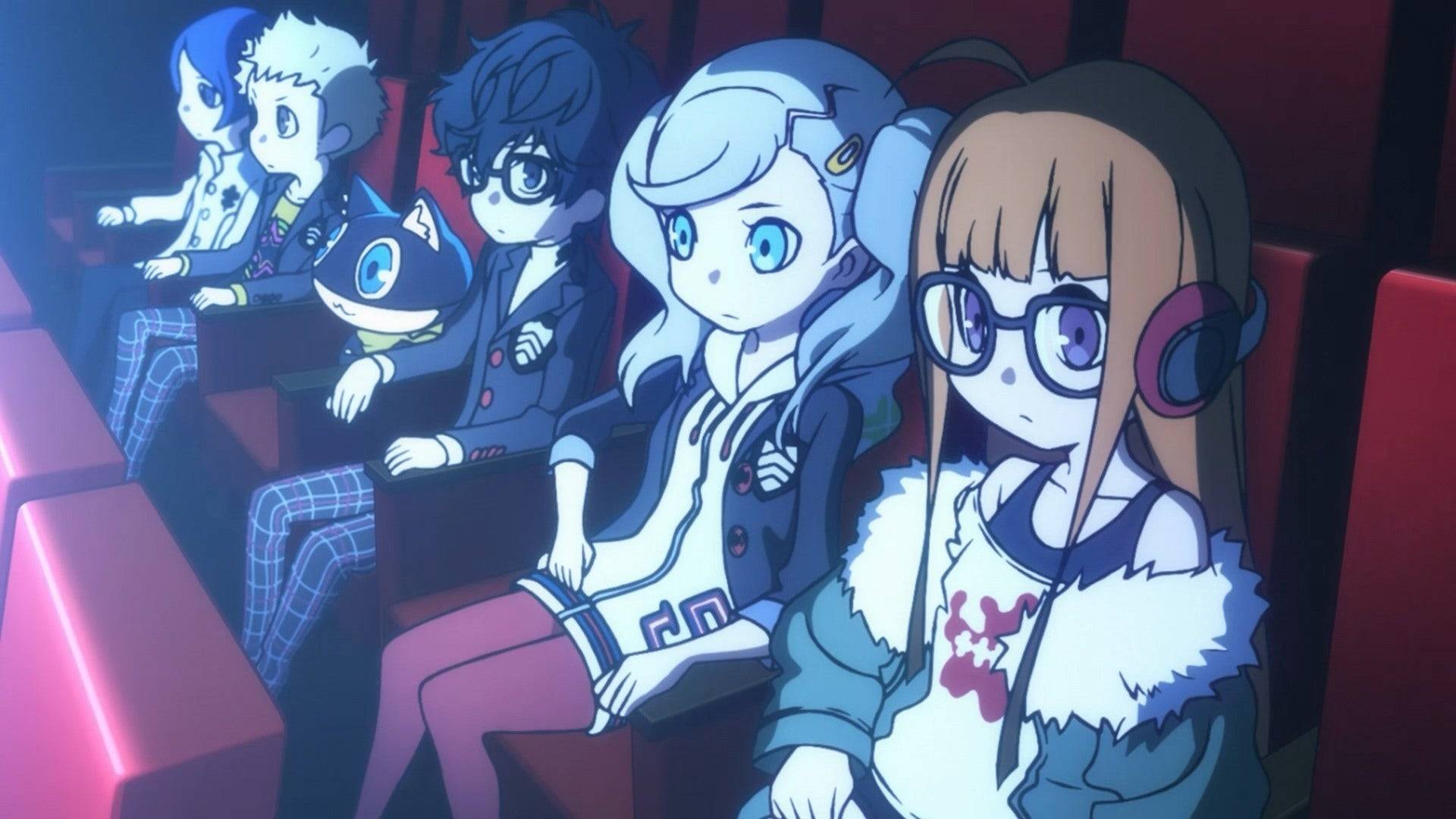
Persona Q2: New Cinema Labyrinth reunites characters from Persona 3, 4, and 5 in a movie theater, where they must navigate different film worlds to escape. The game maintains the series' tradition of first-person dungeon exploration and turn-based battles.
13. Persona 5 Tactica (2023)
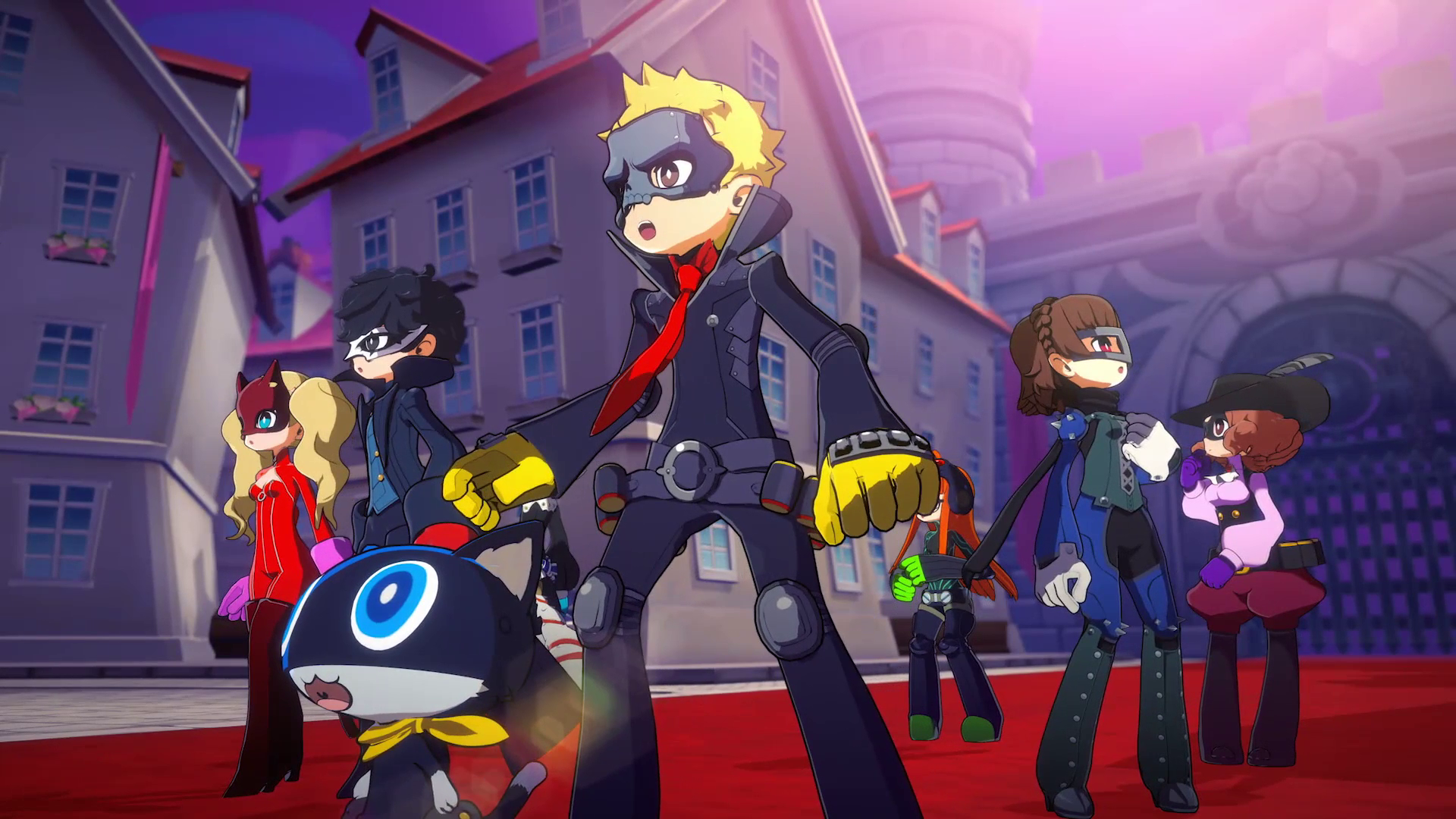
Set during the events of Persona 5, Persona 5 Tactica is a strategy-focused spin-off where the Phantom Thieves find themselves in an alternate realm called the Kingdoms. After being brainwashed, Joker and Morgana must save their allies and return home, employing a tactical grid-based combat system reminiscent of XCOM.
Read our review of Persona 5 Tactica.
14. Persona 5: Dancing in Starlight (2018)
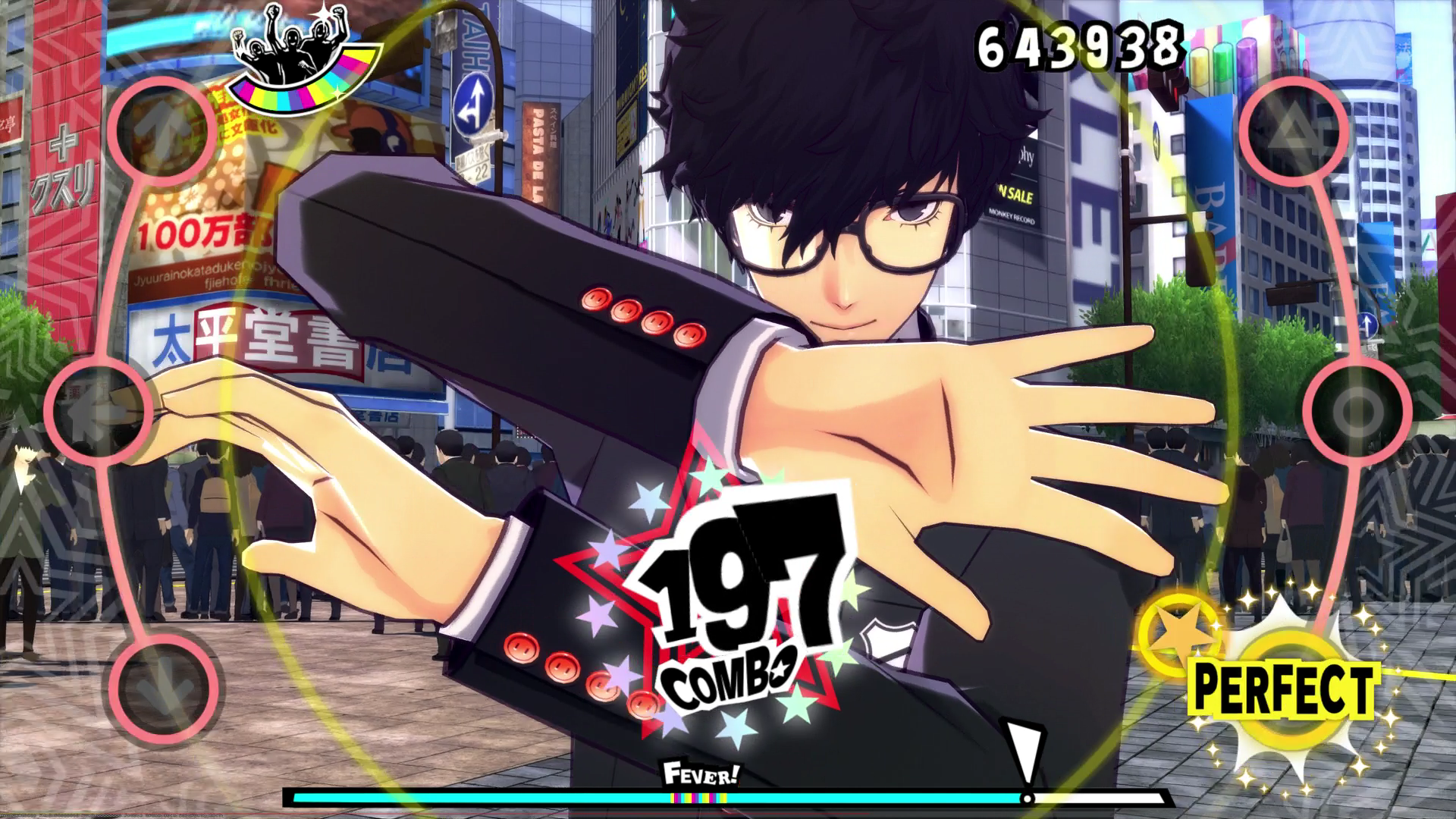
Persona 5: Dancing in Starlight is another rhythm-based dancing game, where the Phantom Thieves are challenged to a dance-off in the Velvet Room, performing routines to Persona 5's memorable tracks.
15. Persona 5 Strikers (2020)
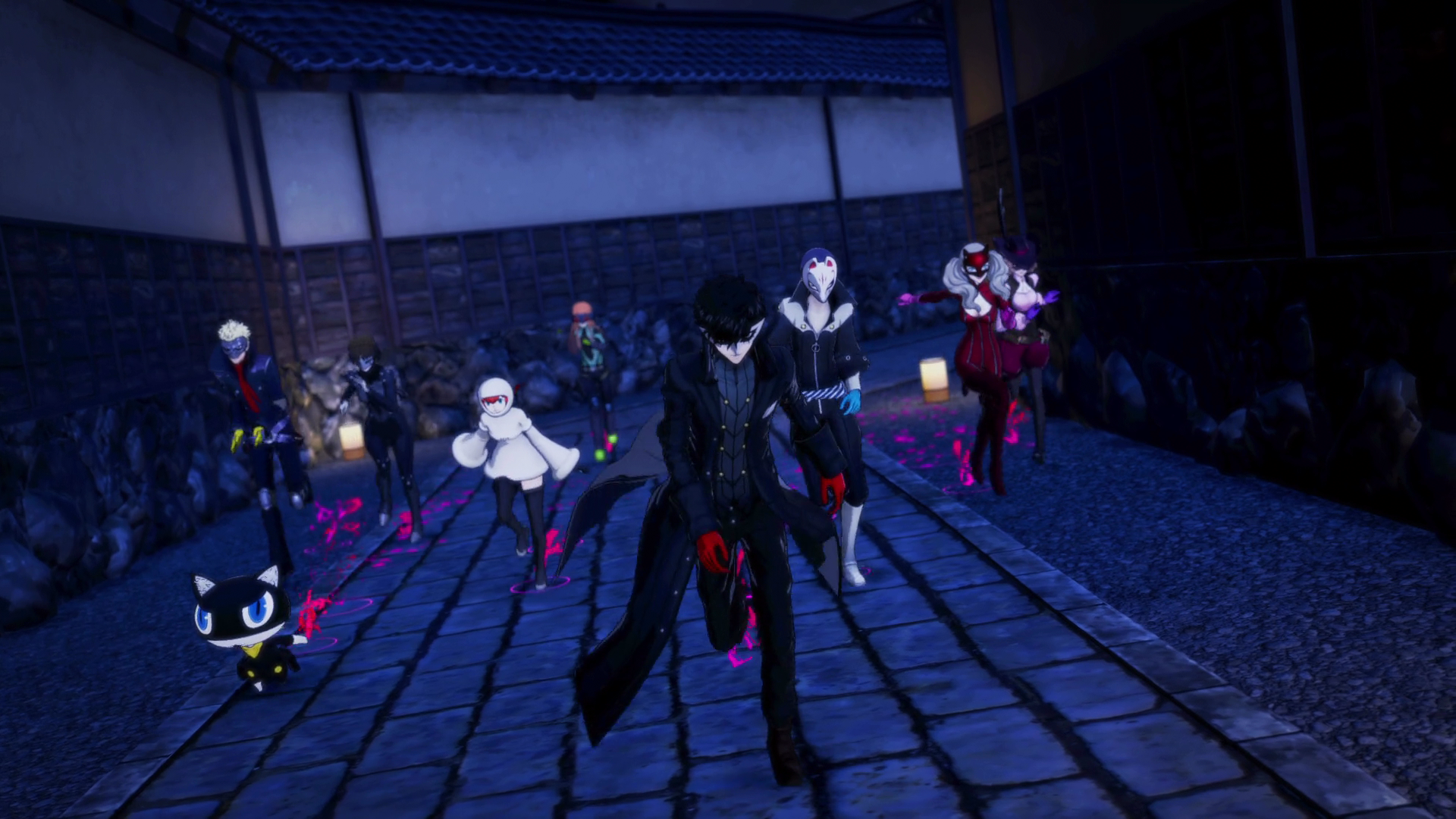
Set four months after Persona 5, Persona 5 Strikers follows the Phantom Thieves on a summer vacation that turns into a Metaverse adventure. Incorporating real-time combat inspired by Dynasty Warriors, the game sees the team uncovering the mysteries behind the EMMA app and its impact on Tokyo.
Read our review of Persona 5 Strikers.
Every Persona Game and Spin-Off in Release Order
- Revelations: Persona (1996)
- Persona 2: Innocent Sin (1999)
- Persona 2: Eternal Punishment (2000)
- Persona 3 (2006)
- Persona 3 FES (2007)
- Persona 4 (2008)
- Persona 3 Portable (2009)
- Persona 4 Arena (2012)
- Persona 4 Golden (2012)
- Persona 4 Arena Ultimax (2013)
- Persona Q: Shadow of the Labyrinth (2014)
- Persona 4: Dancing All Night (2015)
- Persona 5 (2016)
- Persona 3: Dancing in the Moonlight (2018)
- Persona 5: Dancing in the Starlight (2018)
- Persona Q2: New Cinema Labyrinth (2018)
- Persona 5 Royal (2019)
- Persona 5 Strikers (2020)
- Persona 5 Tactica (2023)
- Persona 3 Reload (2024)
What's Next for Persona?
In 2024, Atlus RPG fans enjoyed two releases: Persona 3 Reload and Metaphor: ReFantazio, a new RPG from Studio Zero. Following Metaphor's success and numerous awards, Sega expressed a strong commitment to further investing in Atlus and the Persona franchise.
The next anticipated Persona project is the free-to-play mobile game, Persona 5: The Phantom X, already released in several Asian regions in 2024, with a Japanese release on the horizon following a closed beta. A global release is expected, though no specific date has been announced. Described by Atlus as an original story set in the world of Persona 5, The Phantom X introduces new characters donning the masks of the Phantom Thieves.
While not yet officially confirmed, Persona 6 is eagerly awaited as the next mainline RPG in the series, with fans and industry insiders watching closely for any announcements from Atlus.
-
With the Nintendo Switch 2 on the horizon, it's the perfect time to look back at some legendary games from the iconic publisher.For decades, Nintendo has created some of the most famous and best-selling franchises ever. I've narrowed down 18 of the mAuthor : Hunter Jan 17,2026
-
Forget GTA 6 for a moment; Civilization 7 is the title you should be watching in 2025, and my mind is made up. The lead-up to Civ 7’s launch is packed with exciting moments, including the Civ World Summit. Here’s your guide to watching the action.CivAuthor : Olivia Jan 16,2026
-
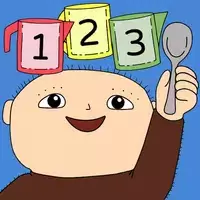 Play 123, Alfie AtkinsDownload
Play 123, Alfie AtkinsDownload -
 Missile WarsDownload
Missile WarsDownload -
 Have Fun! - Trading Card GameDownload
Have Fun! - Trading Card GameDownload -
 Argon: Modern Retro GamingDownload
Argon: Modern Retro GamingDownload -
 Monster War by zhang liexunDownload
Monster War by zhang liexunDownload -
 WWSC : WINNER WINNER FREE SLOT CASINODownload
WWSC : WINNER WINNER FREE SLOT CASINODownload -
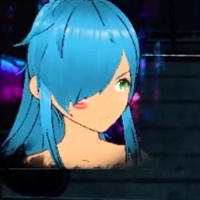 Sakua Rage: Lust SteetsDownload
Sakua Rage: Lust SteetsDownload -
 Baccarat - baccarat casinos BeautyDownload
Baccarat - baccarat casinos BeautyDownload -
 Alcohol-Slot MachineDownload
Alcohol-Slot MachineDownload -
 Car Simulator 3D Indian GameDownload
Car Simulator 3D Indian GameDownload
- Spring Valley Farm Game: January 2025 Redeem Codes
- Mobile Legends: Bang Bang – Best Lukas Build
- WWE Superstars Join Call of Duty Warzone: Mobile Roster
- Midnight Girl is a minimalist point-and-click adventure set in Paris in the 60s, now open for pre-orders on mobile
- Video Game Song Surpasses 100 Million Streams on Spotify
- "Grand Outlaws Unleashes Chaos and Crime on Android Soft Launch"

